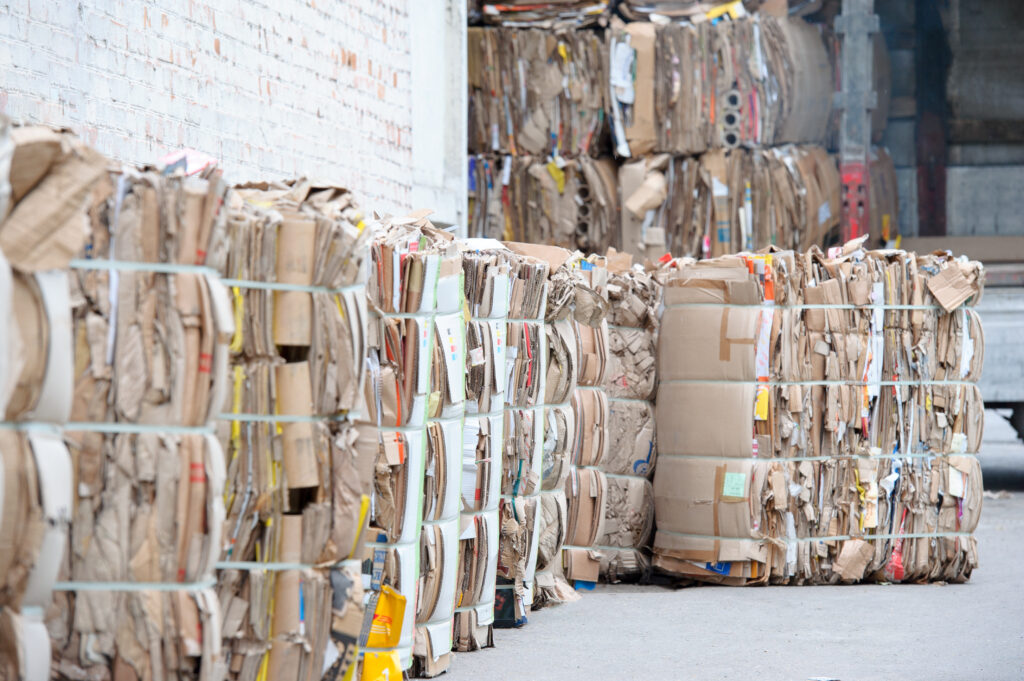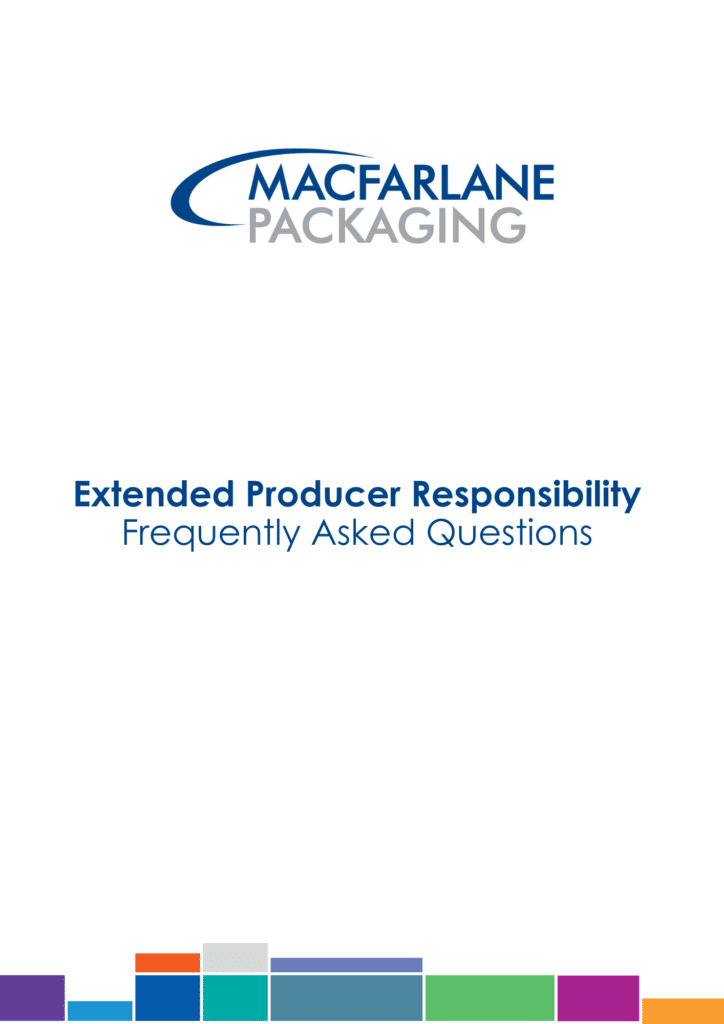
Eco-friendly packaging
we have an extensive range of eco-friendly packaging products and a methodical approach that helps you make informed decisions about your packaging materials.
Macfarlane Packaging’s guide will help you wrap your head around incoming Extended Producer Responsibility (EPR) regulations, why the regulations are being implemented and how they could impact your packaging waste reporting. Information on this page is up to date as of July 2024, in line with Government guidance.
Extended Producer Responsibility (EPR) is a new signature piece of legislation that will see the full cost of managing household packaging waste shift from taxpayers to producers.
It is a reform of the existing UK Packaging Waste Regulations that were established in 1997 and, whilst fees do not commence until 2024, businesses are now legally obliged to be collecting new, relevant data and reporting on the data to the appointed EPR scheme administrator.
It is important to note that an obligated producer can be any business that has an annual turnover of £1m or more, were responsible for 25 tonnes of packaging in 2022 and carry out packaging activities. This can include supplying packed goods onto the UK market under your own brand, importing products in packaging, selling goods online (and shipping them in packaging) or simply supplying empty packaging for others to use. Read our detailed FAQs to learn more…

Here, we’ve answered the top three questions we get asked about EPR. You can can also download our FREE detailed Extended Producer Responsibility FAQ fact sheet or visit the Government website for more information. Our EPR FAQ page was updated on July 2024, in line with the latest Government guidance.
Extended Producer Responsibility (EPR) is a new signature piece of legislation that will see the full cost of managing household packaging waste shift from taxpayers to producers. It is a reform of the existing UK Packaging Waste Regulations that were established in 1997 and, whilst fees do not commence until 2024, businesses are now legally obliged to be collecting new, relevant data and reporting on the data to the appointed EPR scheme administrator.
Producers will be taxed to pay the full costs of managing household packaging waste. Fees will be modulated over time. This is to further incentivise the use of recycled packaging. EPR levies will be collected in addition to Packaging Waste Recycling Note (PRN or PERN) fees.
Extended Producer Responsibility forms part of the Government’s strategy to protect the climate, drive green growth, and reduce unnecessary waste. Shifting the cost of processing waste from households to producers is set to encourage a more circular economy, where producers will reuse and recycle more packaging throughout its lifecycle. The overarching principle behind Extended Producer Responsibility is that the polluter should pay for the waste that they create.
There are some key differences between EPR and historic Packaging Waste Regulations. At the moment, responsibility for packaging waste is spread across multiple points in the supply chain. However, under new Extended Producer Responsibility regulations, the responsibility is placed on one producer. In addition, the financial burden of processing packaging waste will move from council tax waste systems to the responsible producers. Funds raised by the EPR scheme will be redistributed to local authorities by the scheme’s appointed administrator.
Funds raised by the current Packaging Waste Regulations are only used to partially subsidise UK recycling. Under the new EPR scheme, the full net cost of all elements of packaging processing will be covered. This will include everything from collection, sorting and treatment of packaging waste. The new scheme will also introduce lower compliance thresholds, meaning more businesses will have responsibilities under the scheme.
See more in-depth frequently asked questions about the incoming Extended Producer Responsibility scheme. In this download, we answer common questions like:

At Macfarlane Packaging, we can help you reduce your packaging waste and support you in making informed choices about sustainable packaging.

we have an extensive range of eco-friendly packaging products and a methodical approach that helps you make informed decisions about your packaging materials.

Our unique tool, the Packaging Optimimiser can show you exactly what your packaging is costing you and the environment. And then show you how new solutions can help…

If you want to know your packaging weights in a snap for packaging waste reporting our easy e-trading system can make life a breeze and cut your packaging admin.